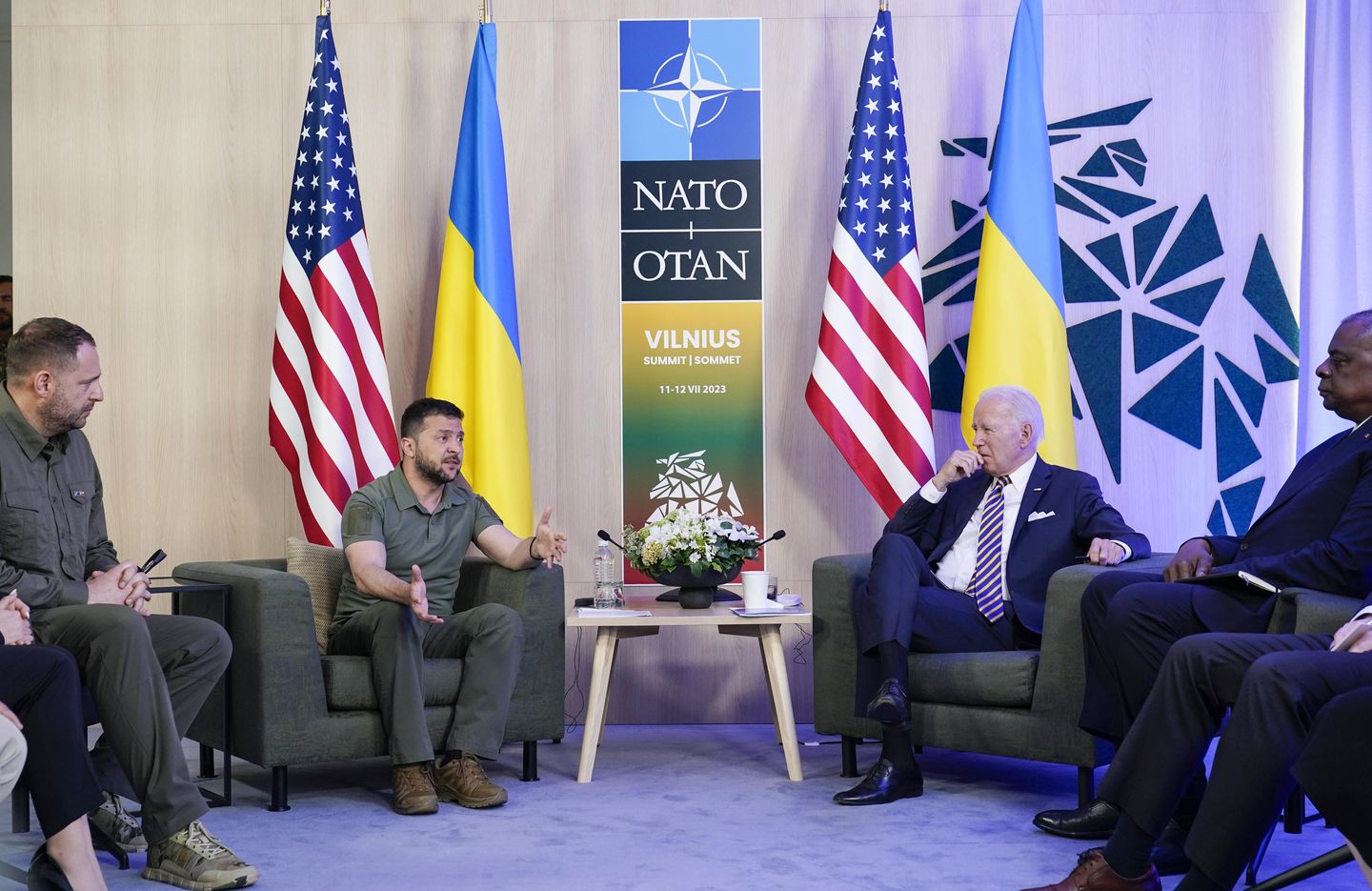NATO leaders convened in Washington this week to commemorate the alliance’s 75th anniversary, facing a pivotal decision regarding Ukraine’s potential membership. The ongoing conflict between Ukraine and Russia adds urgency to the debate, as the war enters its third year with no clear end in sight.
The question of Ukraine’s NATO membership has been a contentious issue, fraught with geopolitical implications and historical tensions. As the summit kicks off, leaders are grappling with how to address this crucial decision and ensure a stable future for the region.
The conflict between Ukraine and Russia dates back to 2014, when Russia annexed Crimea and supported separatist movements in eastern Ukraine. The ensuing war has claimed thousands of lives and caused widespread devastation, drawing condemnation from the international community.
Despite ongoing efforts to reach a diplomatic resolution, the conflict shows no signs of abating. The situation in Ukraine remains precarious, with daily skirmishes and ceasefire violations keeping tensions high. Against this backdrop, NATO leaders must carefully consider the implications of admitting Ukraine into the alliance.
Proponents of Ukraine’s NATO membership argue that it would provide much-needed security and stability for the country, deterring further Russian aggression and bolstering Ukraine’s defenses. They point to the alliance’s track record of promoting peace and security in Europe, citing its role in deterring Soviet aggression during the Cold War.
However, opponents raise concerns about the potential for escalation and the impact on NATO’s relationship with Russia. They argue that admitting Ukraine could provoke a dangerous response from Moscow, leading to further destabilization in the region.
The debate over Ukraine’s NATO membership reflects broader questions about the alliance’s role in the 21st century. As NATO celebrates its 75th anniversary, it faces new challenges and uncertainties, including rising tensions with Russia, growing threats from non-state actors, and evolving security dynamics in Europe and beyond.
At the heart of these challenges is the question of how NATO can adapt to a rapidly changing security environment while upholding its core principles of collective defense and solidarity. The summit in Washington provides an opportunity for leaders to reaffirm their commitment to these principles and chart a course for the alliance’s future.
One key issue on the agenda is the question of enlargement, with Ukraine’s potential membership at the forefront of discussions. NATO has already taken steps to deepen its partnership with Ukraine, including providing military assistance and conducting joint exercises. However, formalizing Ukraine’s membership would mark a significant escalation in the alliance’s relationship with Russia.
The summit also comes at a time of heightened tensions between NATO and Russia, with recent incidents highlighting the risks of miscalculation and escalation. The downing of a Russian fighter jet by Turkey in 2015 and the poisoning of former Russian spy Sergei Skripal in the UK in 2018 underscore the potential for conflict in the region.
Against this backdrop, NATO leaders are under pressure to demonstrate unity and resolve in the face of Russian aggression. The alliance’s credibility is at stake, as it seeks to reassure member states of its commitment to their security and territorial integrity.
The question of Ukraine’s NATO membership is therefore a critical test of the alliance’s ability to adapt to new threats and challenges. By extending its security umbrella to Ukraine, NATO would send a clear message to Moscow that further aggression will not be tolerated. However, the risks of escalation and the potential for conflict loom large, raising difficult questions for leaders to grapple with.
As the summit gets underway, all eyes are on Washington as NATO leaders navigate these complex issues and seek to chart a course for the alliance’s future. The decisions made in the coming days will have far-reaching implications for the security and stability of Europe and the broader international community.
In the midst of these challenges, one thing is clear: the question of Ukraine’s NATO membership is not just a matter of geopolitics, but a test of the alliance’s values and principles. As NATO celebrates its 75th anniversary, the decisions made at this pivotal moment will shape its role in the 21st century and beyond. The stakes could not be higher, as leaders grapple with the urgent task of ensuring peace and security in a rapidly changing world.









